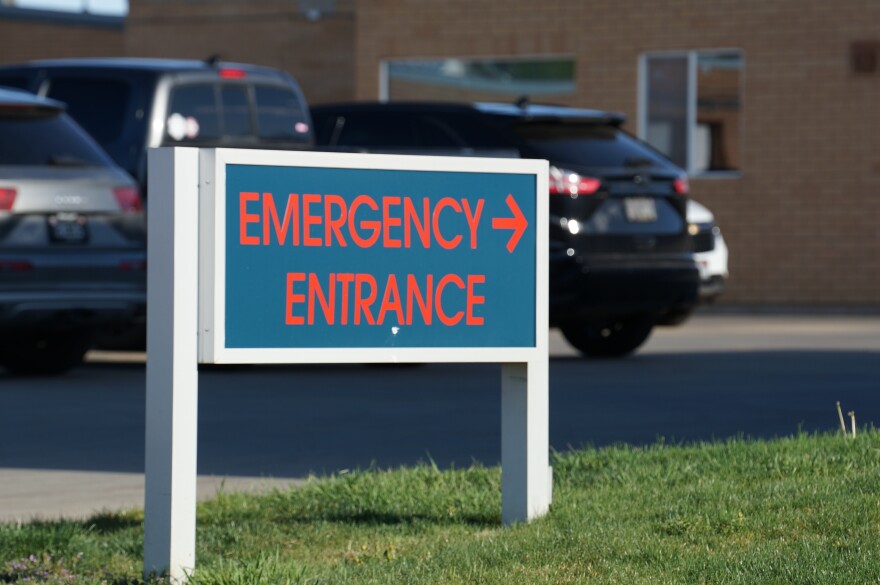Callie Snow had just put her four kids down for a nap when she took a seat at the desk in her home office. She pulled up on her computer a now constant source of worry: the checkout page for her family's health insurance.
“It’s something we think about a lot," she said quietly, so as not to wake them.
When Snow’s husband accepted a job at a smaller company that doesn't offer health care coverage, her family joined the more than 400,000 Utahns who use the Affordable Care Act Marketplace to shop for insurance.
But things are changing.
“This is like a second mortgage,” said Snow, looking over new prices for their plan.
For years, the government offered extra financial help through tax credits to bring down the price of health care. But these subsidies are under threat and set to expire on Dec. 31. The fight over ACA tax credits was at the heart of the government shutdown that ended Nov. 12 when President Trump signed a deal that didn’t address the health care subsidies.
As a result, the ACA marketplace has adjusted prices, leaving Utahns who use the program in the lurch.
If the Trump administration does not extend ACA tax credits, the Snow family’s current plan will more than double in price.
“We pay about $1,300 now, and our current plan, if we kept it, would be $2,800 — that’s not doable.”
The Snow family is not alone. According to September numbers from the Kem C. Gardner Policy Institute, 11.8% of Utahns enroll in ACA benefits, the fourth highest rate in the nation.
The Utah Health Policy Project is a non-profit that lobbies with lawmakers for sustainable health care policy. According to policy analyst Daniel Sloan, if these cuts are made, it could be life-threatening for some of Utah’s most vulnerable residents.
“It will be really serious for them and could affect their ability to live a functioning life,” he said.
“If they can’t get, for example, a monthly transfusion that you need to keep you alive — if that becomes unaffordable, that’s going to really affect at least your quality of life and your long-term health.”
Snow explained that while the extra cost will hurt her family financially, it's already impacting how she and her husband approach parenting.
“In the middle of the night, if my six-month-old is clogged up with snot, what will come into our mind is, ‘Is this worth going to the ER about?’”
Despite advice from her pediatrician to “loosen the leash” on letting them play and explore outside, Snow said she will be parenting with “more bubble wrap.”
“It’s a part of life. They’re gonna fall, they’re gonna break bones. Maybe it [would’ve been] a couple of hundred bucks in the ER, we could swing it. But if we’re looking at thousands and thousands of dollars out of pocket?”
The plans Snow is considering could increase her deductible from around $3000 to as high as $18,000.
Snow explained that it’s becoming increasingly difficult to balance what’s “good” for her kids, like exploration and outside play, with the essentials like clothes, food and keeping a roof over their heads.
And with inflated prices, Sloan said he’s heard many stories like Snow’s and anticipates some Utahns will opt against getting health insurance all together.
“A lot of people, especially younger people, would probably make that calculation,” he said.
Senate Democrats have about a month to write a bill that addresses the extension of government subsidies in a way that gets enough Republicans to sign on.
With marketplace enrollment open now and the expiration of subsidies fast approaching, Sloan said the government is cutting it close with a decision that determines the livelihood of at least 24 million Americans.
“Hopefully there can be some action from Congress in the next few weeks to kind of stave this off. It's going to be hard for a lot of people to figure out what the next step would be if they don't extend these tax credits.”





